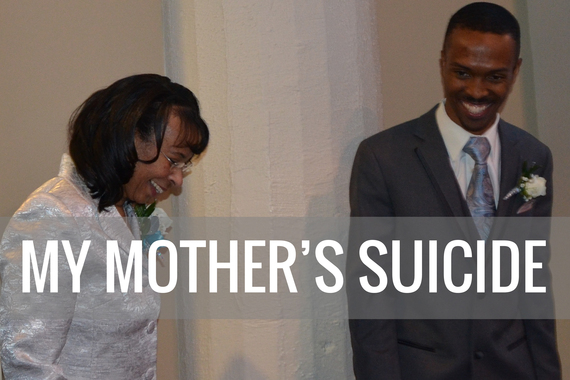Everything that I knew about life changed on June 22nd, 2015. On this day, I learned that my mother took her own life in my childhood home. She was 53 and I was 26 at the time.
Devastating is not quite the word I would use to describe this type of news, and I still haven't quite figured out the words to describe how I actually feel about everything so I'm not going to try and cover that yet.
My mother was the type of person that was always lively and made friends easily. She was well known and loved in our hometown, so her death came as a surprise to many. It was a shock to me as well. I knew that she had experienced some hard times recently and had a short episode of depression about a year ago, but I didn't know how bad things really were.
She was actually diagnosed with chronic manic depression. I never knew about this diagnosis because she never told me about it, I only learned that she had it when I was reading her death certificate. At that point, it was a little late to be learning of her true condition. What I now realize is that whenever she talked about her experience with depression and what was actually going on, it was always masked with religion. She would say things like "I felt like I was in a fog or being held by a demonic force..." or "God brought me out of the darkness and now I'm healed..."
I have nothing against religious beliefs and practices, I am a Christian myself, but in this situation we have to realize that there are other things at play and not just religion. Our community has a hard time talking about issues concerning mental health and I feel like much of it comes from the stigma that is unjustly associated with it. People feel as though they have something to be ashamed of because they are struggling with a mental disease. Mental illness is just that -- an illness. Do people feel ashamed for catching the flu? For having cancer? No.
Mental illness is just as serious and debilitating as any physical illness or disease and we need to start treating it as such. If my mother had felt more comfortable with actively managing her condition and speaking out about it, things may have been completely different. I say may, because they may have turned out exactly the same.
Even still, talking about these things allows everyone to be on the same page. If I had known that my mother was actually suffering from a mental illness then I may have been better able to recognize the signs she was clearly showing before she took her life. I may not have been able to stop her, but I would have been given the opportunity to try.
My mother's suicide is hard to talk about, but it needs to be discussed. I'm not ashamed of how she died because I am proud of how she lived. I know that in her final moments, she was struggling with a unbearable pain that she was simply tired of fighting. This keeps me from wondering why she left us here and why there was no letter to explain her decision. She just wanted it all to stop because she thought there was no other alternative.
Now that I have experienced this, I want more people to step up and talk about mental illness and suicide prevention. It may not be a fun conversation to have and it may not be a very comfortable experience, but it is necessary. We need to stop minimizing the importance of mental health and start talking about how to change the way we think about it.
#StartTheConversation
This article originally appeared on UnsolicitedTruth.com, a blog that Derrell co-authors with his wife, where they speak honestly about life, love, and mental health. You can connect with Derrell on Facebook, Google+ and Twitter!
__________________________
Need help? In the U.S., call 1-800-273-8255 for the National Suicide Prevention Lifeline.
